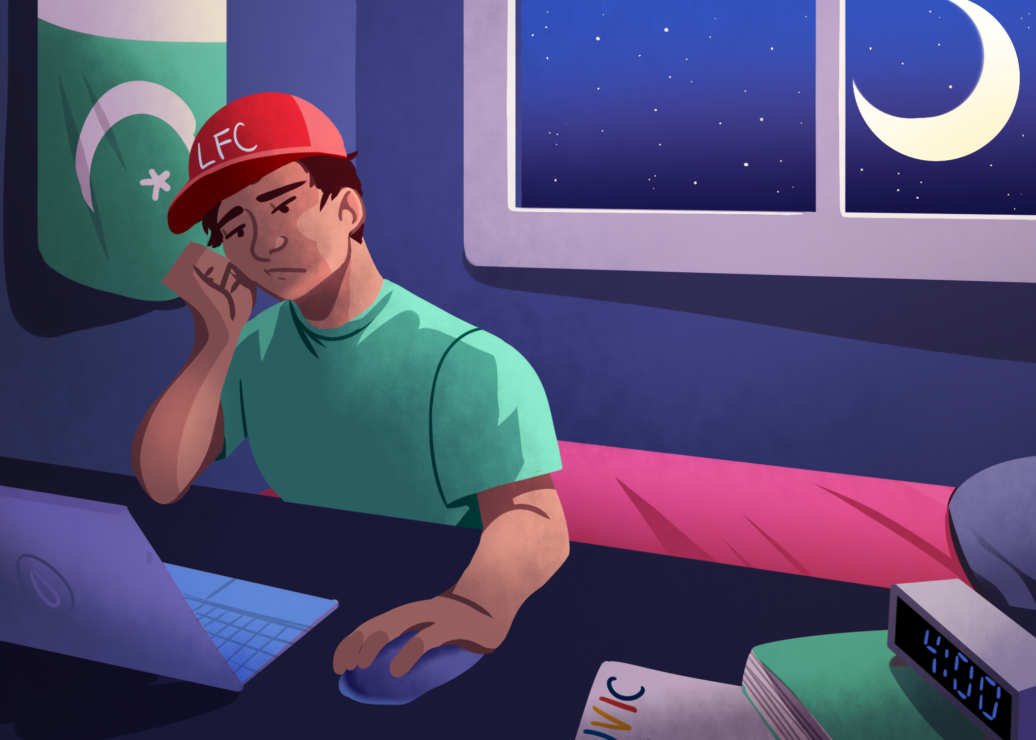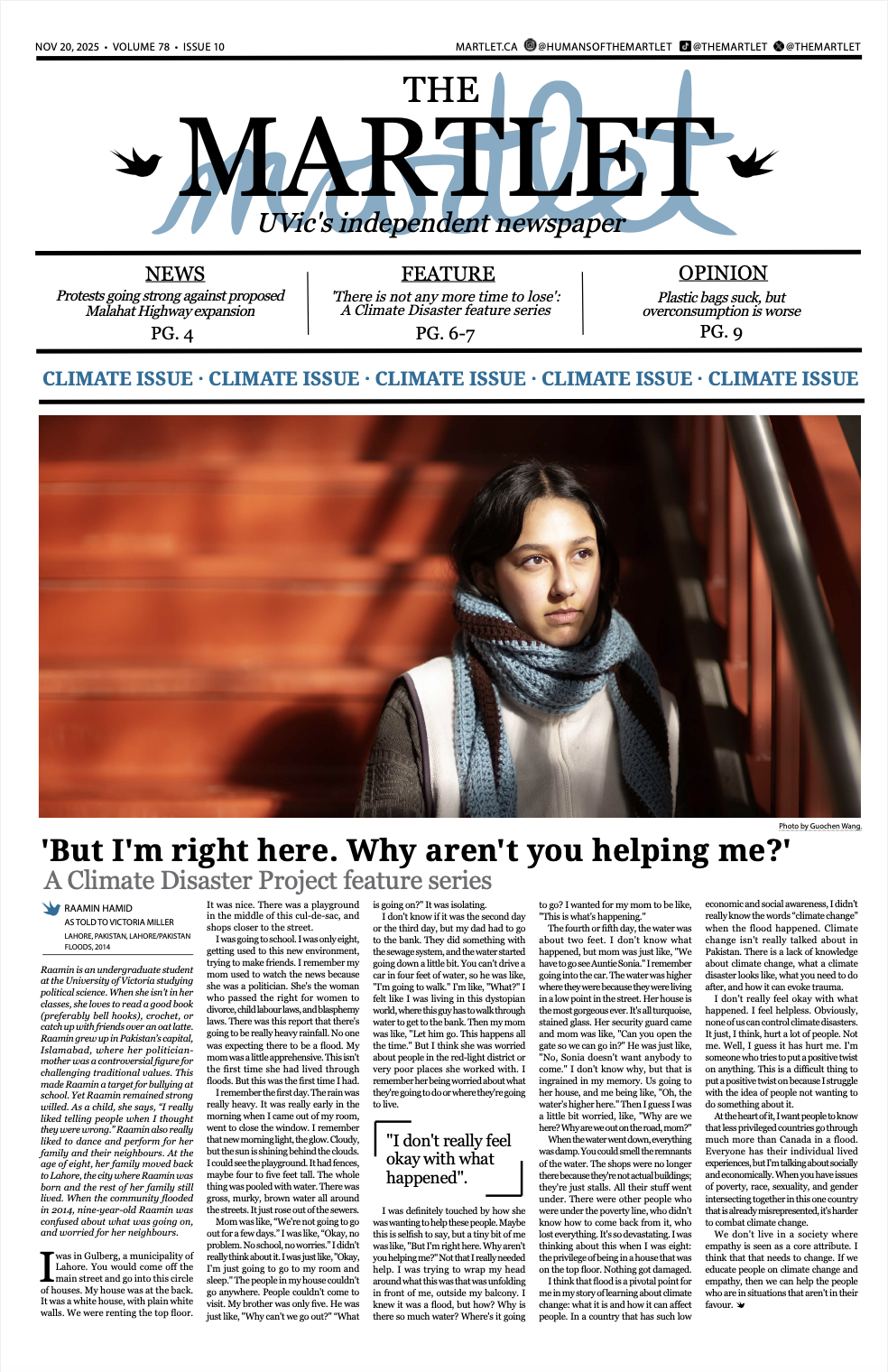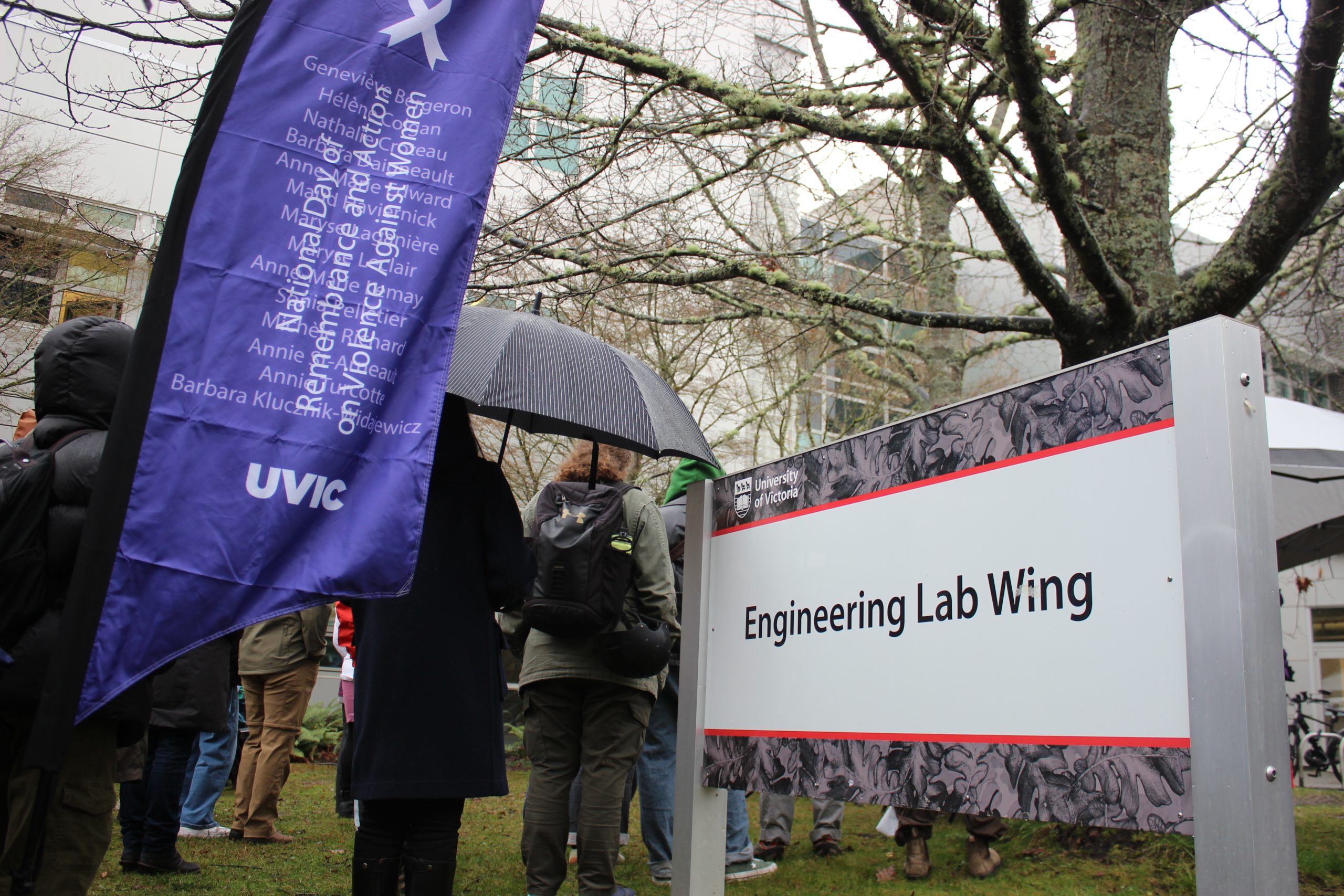Time differences have disrupted my body clock, social life, and connection with Canadian culture

Like many students, I started online classes in September 2020. However, unlike most of my classmates at UVic, I was in Pakistan — far from Victoria and dealing with a 12-hour time difference.
International students studying from abroad have faced a unique set of challenges: time differences that disrupt our sleep and social lives, being far away from the places we’re learning about, and lacking the supports that students in Canada have available to them.
I have been in Pakistan, the country I grew up in, ever since the start of the pandemic, and the 12-13 hour time difference with Victoria has affected my physical and mental health. My body clock has run on PST during the semesters, impacting my social life and causing me to have sleepless nights.
I’m not the only international student studying abroad who has faced a particularly difficult school year. Mental health experts found out of a survey of 124 international students, some of whom were studying from other countries, that 84.7 per cent had “moderate-high-perceived stress.” Research from the University of Calgary said that conflicting time zones and ultra-distance online learning may negatively effect international students.
In September 2020, the CBC spoke with a number of international students studying from their home countries. In that interview, most students had the same routine as me: wake up all night, sleep during the day, wave bye to their social lives and repeat. With this routine I barely got to see my family — when I woke up they were getting ready for bed.
To combat the negative impacts of conflicting time zones, UVic and other universities offered asynchronous classes. However, most of my classes were synchronous. I ended up doing the work for my asynchronous class at night as well, since my schedule was already on PST.
Studying at a Canadian university while living abroad also made me feel disconnected from what I was learning about. In November 2020, when I was studying about the War of 1812 in a history course, I felt disconnected from the topic — as I was thousands of miles away from where it actually took place. I felt that same disconnection when I learned about the Halifax Explosion of 1917.
This disconnection with Canadian culture and identity has been a substantial stressor in my life for more than a year now. In my opinion, learning about historical events is more powerful when you can witness where they took place — or at least be present in the same country. For instance, when I learned about the Komagata Maru incident of 1914, I was physically present in Vancouver at that time and I saw the memorial in Coal Harbour and went to the Burrard Inlet where the incident took place. I felt a sense of connection with the topic, and my understanding of the incident improved.
Not only did the time difference and disconnect from Canadian history make online classes difficult, I also lacked access to the government support available to students in Canada. For instance, students in Canada have access to universal health care, but in Pakistan it is largely privatized. If I got sick, I would have to pay the cost out of my own pocket — yet another stressor for international students studying from abroad.
From my perspective, this last year has been a lost year for international students studying from abroad. The stress of online school inhibited my ability to learn, grow professionally, and socialize. These are the experiences and desires that I have craved for over a year, and what will bring an end to my nocturnal studies so far. I have despised this nocturnal studying for the past year but it feels like it has been a century.
I think there is light at the end of a very dark tunnel, as classes are finally happening face-to-face — which will eradicate the stressors I, and other international students studying at their home countries, have had over the past year.








